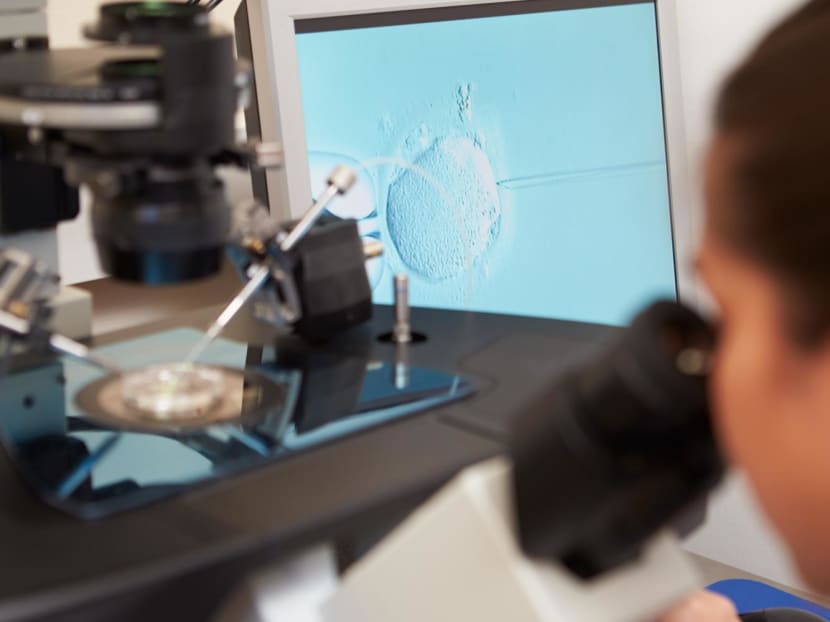Your Say: 3 reasons why S'pore is justified in restricting genetic screening of IVF embryos

I refer to the article "Baby Steps: 'Toughest period of my life', say women who underwent costly, emotional IVF process. Can more be done to support them?" (Feb 13).
It stated that some Singaporean couples travel overseas to do pre-implantation genetic screening (PGS) of their in-vitro fertilisation (IVF) embryos, due to restrictive regulations at home.
Currently, PGS is only open to women who are 35 and above, or those regardless of age who have two or more failed IVF procedures or two or more recurrent pregnancy losses.
In 2020, the Ministry of Health (MOH) said only 104 patients had undergone PGS thus far.
It is necessary to understand the various drawbacks of PGS and why it is so strictly regulated by MOH.
First, patients must be aware that genetic screening can potentially damage their embryo.
The technique is highly invasive, involving drilling a hole through the embryo shell and extracting cells for biopsy. This is potentially harmful and can impair its development.
Experts have pointed out that studies claiming no ill effects of PGS on embryos are often based on testing of excellent high-quality embryos rather than more "delicate" lower-quality embryos that might suffer more.
Because older women tend to have weaker lower-quality embryos, these may be more prone to damage upon testing.
Second, genetic testing is prone to misdiagnosis, which could result in patients discarding viable embryos that can give rise to a healthy baby.
This is because the testing involves extracting cells only from the outer embryo layer that produces the placenta and umbilical cord, which is not representative of the inner embryo layer that gives rise to the baby itself.
"Mosaic embryos" containing a mixture of genetically normal and abnormal cells have demonstrated the ability to self-correct and produce a healthy birth.
This "self-correction" mechanism involves pushing out the genetically abnormal cells into the outer embryo layer, which gives rise to the placenta and umbilical cord.
Older women have a limited number of embryos during IVF.
Therefore, excluding or discarding mosaic embryos that can potentially give rise to a normal baby, would substantially reduce their chances of IVF success. Some older IVF patients may have no embryos left to transfer after genetic testing.
Third, several large-scale clinical studies have shown that PGS does not improve IVF success rates.
In 2019, a large multi-centre randomised clinical trial involving 34 IVF clinics in the United States, Canada, United Kingdom, and Australia and including 661 patients aged between 24 and 40 years, found no significant overall improvement in IVF success rates with PGS.
In 2021, another large clinical trial in China, involving 14 IVF clinics and a total of 1,212 patients aged between 20 and 37 years, reported similar unfavourable results that were published in the prestigious New England Journal of Medicine.
Hence, based on the latest scientific and clinical data, serious doubts about the medical benefits of PGS have emerged, and current stringent regulation by MOH is thus justified.
ABOUT THE WRITER:
Dr Alexis Heng Boon Chin is a Singaporean working as an associate professor at Peking University, with interest in biomedical ethics.
Have views on this issue or a news topic you care about? Send your letter to voices [at] mediacorp.com.sg (voices[at]mediacorp[dot]com[dot]sg) with your full name, address and phone number.






